News Archive
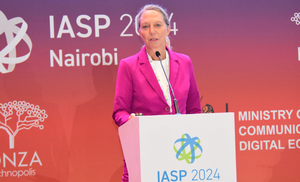
Future of work: Life-long-learning, values and purpose
WISTA Head of Human Resources Bessie Fischer-Bohn spoke at the IASP conference in Nairobi on the challenges of the “New World of Work”:
Executive Summary The future of work is undergoing significant changes, marked by global challenges and transformative megatrends. We define three main challenges: shifting values, demographic transformation, rapid…
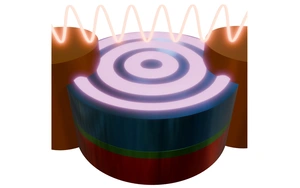
Alternating currents for alternative computing with magnets
Scientists demonstrate efficient generation of spin waves with high amplitudes using alternating currents in a simple magnetic stack – a key step toward energy-efficient computing of the future:
A new study conducted at the University of Vienna, the Max Planck Institute for Intelligent Systems in Stuttgart, and the Helmholtz Centers in Berlin and Dresden takes an important step in the challenge to miniaturize…

Innovative sensor system enables real-time analysis of drinking water
BAM is developing a fast, precise method to detect fecal contamination:
In an EU project, the Bundesanstalt für Materialforschung und -prüfung (BAM) is developing a method to detect fecal contamination in drinking water quickly and efficiently. A mini-sensor system is being used that…
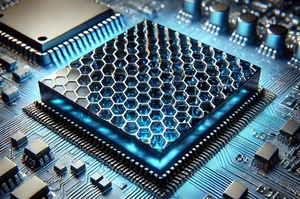
Heterostructures for Spintronics
Experiments at BESSY II show two mutually reinforcing quantum effects in graphene-cobalt-iridium heterostructures:
Spintronic devices work with spin textures caused by quantum-physical interactions. A Spanish-German collaboration has now studied graphene-cobalt-iridium heterostructures at BESSY II. The results show how two desired…
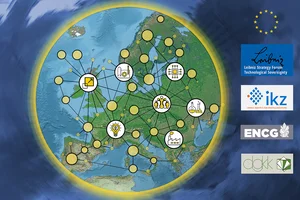
IKZ publishes Status Analysis on Science & Technology of strategic crystals in the EU
Important contribution of the research institute for the recovery of strategic competitiveness in the EU:
Together with the European Network on Crystal Growth (ENCG) and the German Society for Crystal Growth (Deutsche Gesellschaft für Kristallzüchtung & Kristallwachstum [DGKK]), contributions on academic and industrial…
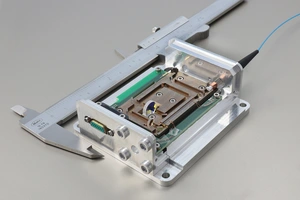
FBH presents trends in photonics and quantum technologies at Photonics Days 2024
On October 9 and 10, 2024, the Ferdinand-Braun-Institut will contribute to the Photonics Days Berlin Brandenburg:
For two days, experts from research and industry will meet in Berlin Adlershof to discuss current trends in laser technology, heterointegration, microsystems technology, and various other topics. A key focus on…
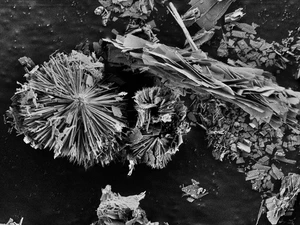
MXenes show talent as catalyst for the production of green hydrogen
This class of materials is more stable and efficient than the best metal oxide catalysts currently available:
The MXene class of materials has many talents. An international team led by HZB chemist Michelle Browne has now demonstrated that MXenes, properly functionalised, are excellent catalysts for the oxygen evolution…
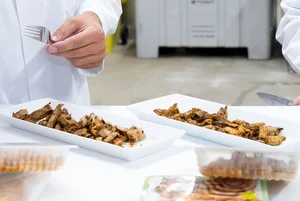
Nosh.bio Partners with Leading European Meat Producer to Launch World’s First Single-Ingredient Meat Analog
The meat analog will be launched through zur Mühlen Group (ZMG)’s extensive retailer network and will be available in Germany first:
Nosh.bio, a pioneering B2B food tech startup specialising in fermented fungi-based ingredients, has announced a groundbreaking commercial partnership with the zur Mühlen Group (ZMG), one of Europe’s largest sausage…
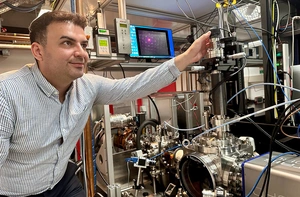
Kasra Amini awarded €2.5 million of funding from the European Research Council
The MBI researcher wants to develop a tool to better track atomic changes in molecules and condensed matter during a reaction:
Kasra Amini has been awarded the prestigious Starting Grant from the European Research Council (ERC). This highly competitive grant is given to exceptional early-career researchers with two to seven years of…

The cheerleader
Christian Oberfuchshuber fires up audiences as the crowd warmer for major TV shows:
His show is before the show: Christian „Fuchsi“ Oberfuchshuber is the crowd warmer for major TV shows like Germany’s Next Topmodel, Eurovision Song Contest, or ZDF-Fernsehgarten. Two years ago, he energised the crowd…
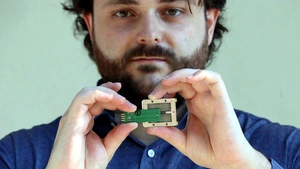
SpinMagIC: 'EPR on a chip' ensures quality of olive oil and beer
HZB spin-off develops sensor to detect free radicals in food:
The first sign of spoilage in many food products is the formation of free radicals, which reduces the shelf-life and the overall quality of the food. Until now, the detection of these molecules has been very costly…
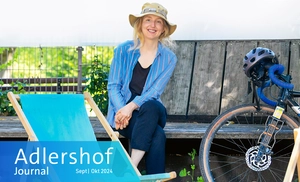
The flow directions of science communication
A research project from Berlin uses transdisciplinary formats to start a conversation with people from the region:
“In some places, there will be too much water, in some too little, and water in general will be more polluted.” At the Einstein Research Unit Climate and Water under Change (CliWaC), researchers from various…
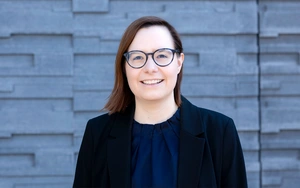
European Research Council funds BAM scientist Janine George
Prof. George receives research funding of 1.5 million euros for her “Multibondes” project:
Janine George from the Bundesanstalt für Materialforschung und -prüfung (BAM) has been awarded a Starting Grant of around 1.5 million euros by the European Research Council (ERC). The prestigious grant will support…
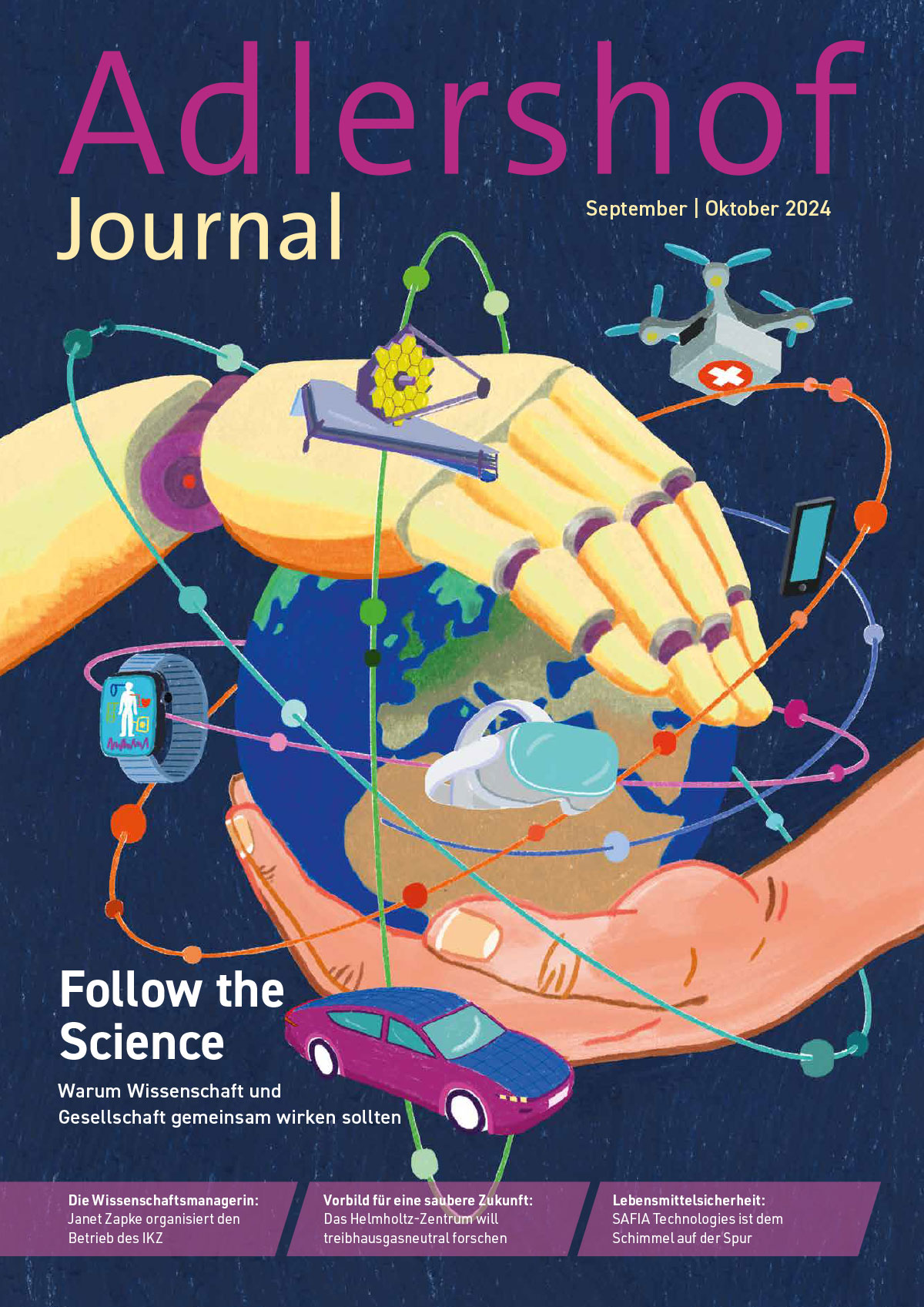
Adlershof Journal September/October 2024
Follow the science: Why science and society should make an impact together:
The science manager at IKZ: Janet Zapke organises operations at the IKZ // Role model for a clean future: HZB wants to conduct greenhouse gas neutral research // Food safety: SAFIA ist tracking down mould …
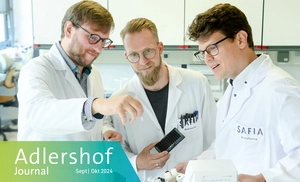
Food safety: Tracking down mould
SAFIA's rapid tests ensure food safety:
They lurk in the shadows, hide in your flour, permeate exotic spices, and swim undetected in sweet juices. We are talking about mycotoxins, the poisonous substances produced by various fungi or mould. They thrive in…

What a Feeling
The learning materials from the start-up ‘Little Feels’ are a great way to train children’s emotions:
“We are currently living in a type of mental health crisis,” says Mariette Herzog. “Every fourth child in German daycare centres exhibits signs of social-emotional developmental deficits. Twenty percent of all…
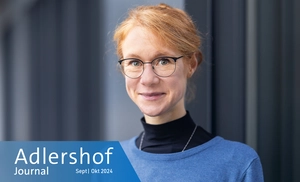
Greenhouse gas neutral research
HZB wants to be a role model for a clean future:
“When a research institution is heavily focused on renewable energies, it should set an example in its efforts for climate protection,” says Carina Hanke. “Because of this, HZB has committed itself to become…
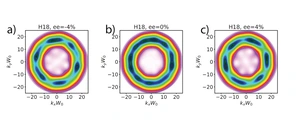
New 'Chiral Vortex' of Light Reveals Molecular Mirror Images
The entirely new structure of light could help drug developers see their work more clearly than before:
An entirely new structure of light is helping to measure chirality in molecules more accurately and robustly than ever before, in a major potential step for the medicine. The study published in Nature Photonics was…
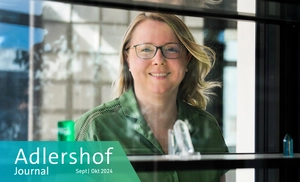
The science manager at IKZ
Janet Zapke organises operations at the Leibniz Institute for Crystal Growth:
When Janet Zapke went from Hamburg to Adlershof, it was the return to a landmark of her past. She has many memories connected to this place, memories of her time at Humboldt-Universität zu Berlin. Of chemistry…
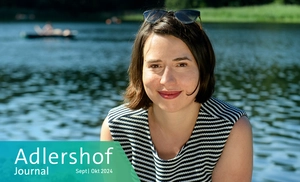
In conversation with Patricia Löwe
Executive Assistant to Corporate Communication at Forschungsverbund Berlin:
Forschungsverbunds Berlin e. V. (FVB), an association of non-university research institutes in Berlin, recently put out the following statement: “In these turbulent times—faced with ongoing crises and attacks on our…